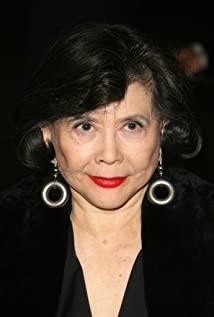In my impression, the rain in Japan is pattering, the raindrops are very small, the raindrops are very thin, and there is a slightly cold chill on the face. Movies often show young people wearing knitted sweaters and scarves, strolling in this drizzle.
Later, when I saw a movie like "Daisy", this romantic feeling continued to deepen, until I watched "Memoirs of a Geisha" this time.
Memoirs of a Geisha is not a very Japanese movie, starting from hearing Chiba say her first words in English. Later, I looked at the director of the film again, only to find out that this is a Japanese film made by an American, just like "The Last Samurai". First of all, I feel that the Japanese culture may not be pure, and the film does have problems in this regard. At the beginning of the movie, the environment where Chiba was sold by her parents was very strange. The car that Chiba and her sister were pulling was very Socratic in the feudal era. The train station scene is typical of British style.
The movie still combines Japanese culture with the survival philosophy of Japan's sense of destiny, and the overall feeling is still satisfactory.
Chiba was sold by her family to a new place, a geisha's paradise. Of course, he and his sister inevitably went on the road of geisha. Even if they were forced to do so, their fate had already been decided. When Chiba first arrived in Gion, she had to find her sister who was separated from her, so Little Pumpkin went upstairs and told Chiba to give up. Little Pumpkin asked Chiba to look at Gion from the top of the building. Chiba was shocked at the time. There was a house in front of him, and behind the house was a house, still a house. At this time, Chiba must have seen his insignificance.
Chiba and Little Pumpkin went to school together. On the way to school, Chiba wanted to run, ran to find her sister, and escaped back to her original home. The little pumpkin pulled Chiba and said, don't destroy yourself. I also think that Chiba should choose to run. After all, this is the fate given by others. She can escape and choose her own life. But after Little Pumpkin finished speaking, I vaguely felt that Chiba couldn't escape.
Later, Chiba found her sister. The two sisters hugged each other, and the moment was very heartbreaking, the raindrops rolled down their faces, with tears in between. The two sisters made an appointment to escape, and when the appointed time came, Chiba was locked in the house. The house is surrounded by high walls, and the height of the walls is completely beyond Chiba's ability. But she still climbed to the roof, and the smooth tile knocked Chiba down heavily.
After that, "Mom" gave her a small package, and Chiba opened the package. It contained the spiritual card and a letter of his own parents. That letter officially shattered Chiba's heart to return home.
A life without hope can only look at the lives of others, Chiba lost her mind by the river. But the passing president made her find hope again: to become a geisha and enter the life of the president.
Chiba's music when she was training as a geisha was very cheerful, and she danced lightly to her own notes. Hope is approaching step by step, Ma Miyu took Chiba to see the chairman, and also met the chairman's friend. And the president's friend saved his life. It's not that the president doesn't like Chiba, but the president wants to repay his kindness, and he wants to give Chiba to this friend.
When I was reading the film review, I found that many people accused the president here: Why do you give your beloved woman to others just because someone else saved you? This is actually Japanese culture. When watching "Chrysanthemum and the Sword", Benedict said that Japan's "relationship" is very important. For the kindness of others, it is more necessary to repay the kindness of others. Sometimes "feelings" are even as important as "king's kindness".
So Chiba's fate is decided, even if there is a good result in the end: with the president. But I have to say that the president has to bear a lot of crimes here, which is not shown in the movie.
When Chiba told Mimiwa about her thoughts, Mimiwa said: You are a geisha not because you can realize your dreams, but because you have nothing. Because I have nothing, I can only suffer silently. This is the fate that the geisha of Ma Miwa and her generation could not escape.
In fact, the ending is a bit of a reunion. According to the development of the plot, Chiba cannot have such a beautiful fate. But Chiba realized her dream and could only silently bless her, as well as the Japanese geisha who now inherit the tradition.
View more about Memoirs of a Geisha reviews











